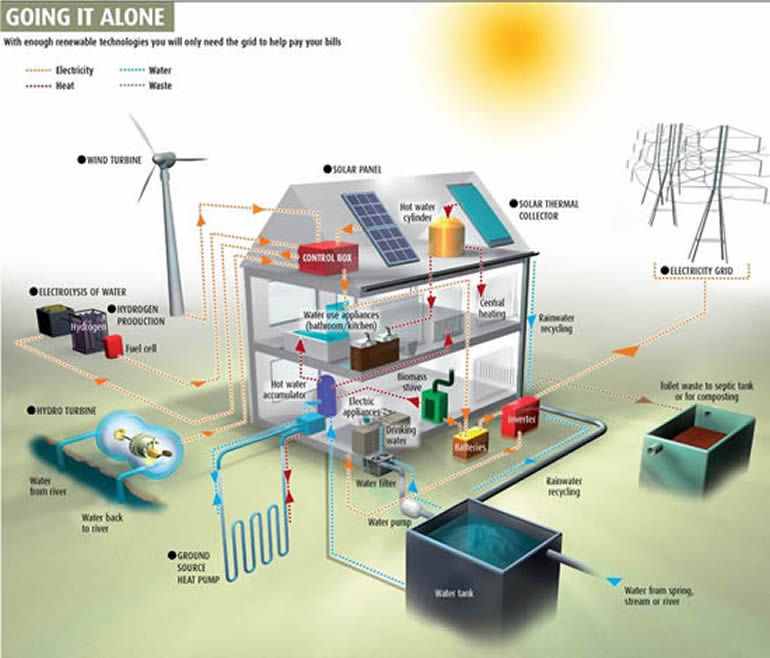Power Needs in a SHTF Situation
Ideally, you will have your bug-out location equipped with a generator and hand versions of many everyday items - hand can opener, hand water pump, hand tools. The less you have to depend on fossil fuels the better. Solar, set up properly, can power things like cell phones and computers that, while not necessities, are pretty hard to live without these days.
To safely store enough fuel can be difficult - gasoline cannot be stored for more than a month or so unless you use a fuel stabilizer. You will need a way to rotate your supplies on a regular basis or your fuel will be useless when you really need it most.
A generator that's big enough can run the well pump, water heater and refrigerator staggered. You may have to forgoe a furnace, electric stove or microwave as they consume more than most generators can output. A wood stove is worth it's weight because you can cook on it, use it for heat and drying wet clothing. We are so dependent on energy it's amazing the things you must live without should the grid go down.
The down side to a generator is that they are noisy, smelly (and need to be outside because they produce toxic fumes) and can't run everything we'd like them to do.

An inverter is an electrical device that converts 12-volt power into 120-volt power. You can run an inverter off of your car's battery or off of a deep-cycle battery that you buy specifically to power the inverter. An inverter is a very easy and inexpensive solution if you can keep your power demands in the 200-watt range. An inverter combined with solar power can be a very viable option. If you are willing to build a more elaborate system, inverters can be a good option up to about 2,500 watts. You'd need a number of deep-cycle batteries and a charging system. The best thing about inverters is they are silent and almost maintenance free.
From this discussion you can see that an inverter only makes sense for very small power loads over relatively short time frames, particularly if you only use it to get power from your car battery.
Other sources of power that may be harnessed are water power from a fast moving water source, batteries and wind. Everyone needs power to run things these days, so give some thought to what you can live without, what you must have, and plan accordingly.























